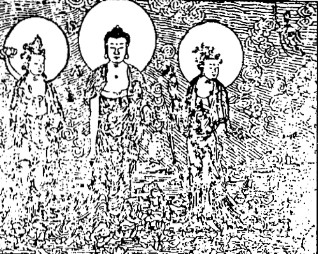Illustrations for the
Sukhavati Meditations
CW40: No.119
Under the guidance of the Buddhist
Yogi C. M. Chen
Brief explanations by Yutang Lin
1. The Teaching
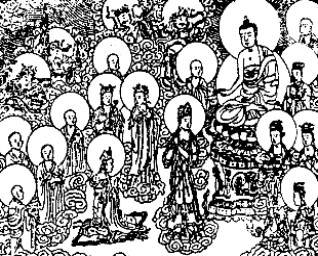 |
The Buddha Sakyamuni teaches the following meditations on Sukhavati.
2. The Setting Sun
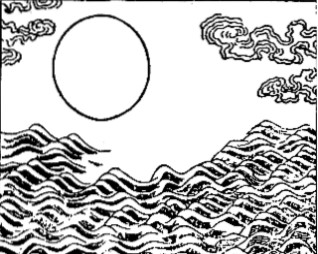 |
At first one should visualize the setting sun like a drum hanging in the western sky.
Keep meditating thus until you can see it even with eyes closed.
3. A Vast Water
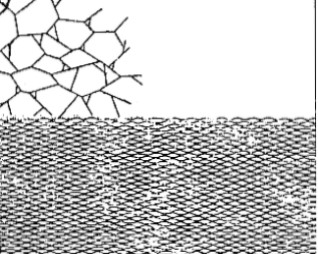 |
Visualize a clear vast water which then freezes into ice.
The ice-land then becomes a crystal ground upheld by an octagonal jeweled platform.
4. The Crystal Ground
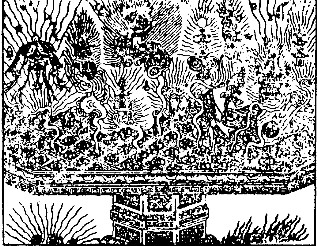 |
Meditate upon this crystal land all the time, except at meals.
When one sees this land vividly in samadhi, then one's sins of many kalpas have been destroyed.
5. Seven Rows of Trees
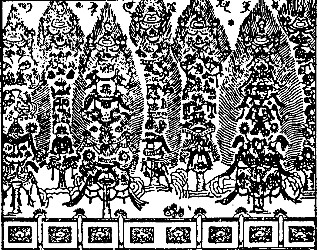 |
Visualize seven rows of jeweled trees that are enormously huge. Seven kinds of jewels form in assorted ways the branches, leaves, flowers and fruits of these trees. Seven layers of pearls that are like Indrajalas cover each tree.
6. Eight Meritorious Ponds
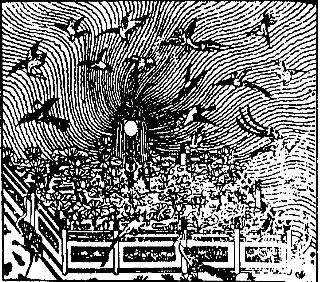 |
Visualize eight water-ponds made of seven kinds of jewels. Each pond contains six thousand million lotus flowers made of jewels. The water and the miraculous birds around all make sounds praising the Three Holinesses--Buddha, Dharma, and Sangha.
7. The Precious Environment
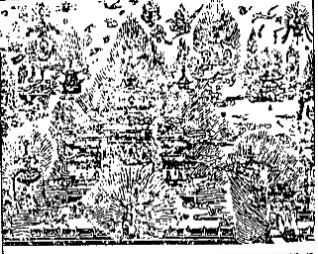 |
Visualize billions of multi-story buildings made of jewels with heavenly beings playing music in them. Filling the sky are numerous musical instruments that automatically play music paying homage to the Three Holinesses--Buddha, Dharma, and Sangha.
8. The Lotus Seat
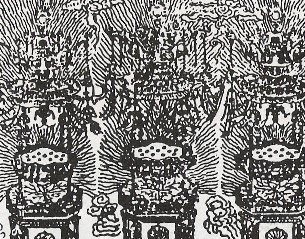 |
Visualize a lotus-flower seat with eighty-four thousand jeweled petals, situated on top of a precious platform that has four huge pennants at the corners supporting a brilliant tent above the seat.
9. The Three Holy Ones
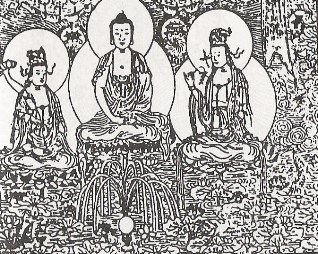 |
One should visualize that under each jeweled tree there appears the following trilogy: In the middle is the gold-colored Amitayus Buddha sitting on a lotus seat. To his right and left, sitting on a lotus seat , are Avalokitesvara and Mahasthanaprapta, respectively.
10. Amitayus Buddha
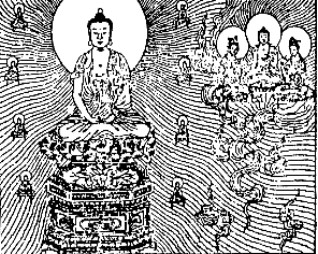 |
Visualize the enormously huge and brilliant body of Amitayus Buddha with a white curl circling clockwise between his eyebrows.
Meditate on this white curl until the whole body of Buddha appears by itself.
11. The Bodhisattva Avalokitesvara
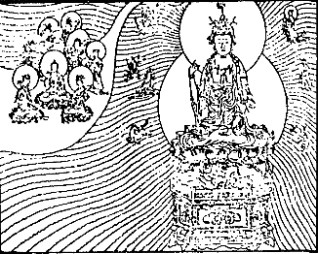 |
Visualize the great Bodhisattva Avalokitesvara with a huge body of pure gold color. His appearance is characterized by wearing a heavenly crown which contains a standing nirmanabuddha. Numerous nirmanabuddhas flow out from this nirmanabuddha's curl.
12. The Bodhisattva Mahasthanaprapta
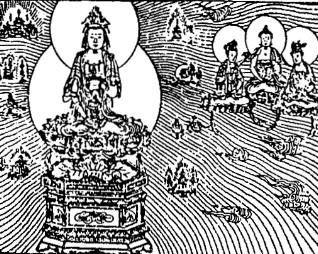 |
Visualize the great Bodhisattva Mahasthanaprapta with a huge body of pure gold color. His appearance is characterized by a heavenly crown that contains five hundred jeweled flowers and a jeweled bottle filled with lights on top of his topknot in order to save sentient beings.
13. General Meditation
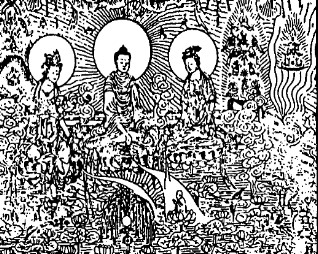 |
Visualize that you are sitting cross-legged inside a lotus flower in Sukhavati. The lotus flower opens and five hundred colorful lights shine upon you. Then you open your eyes and see Buddhas and Bodhisattvas fill the sky, and you listen to their preaching on Buddha Dharma.
14. Assorted Mediation
|
One may visualize the Three Holy Ones to be only sixteen feet tall and standing on lotus seats inside a pond. The two great Bodhisattvas can be distinguished only by the difference in their headdresses.
15. The Nine Grades
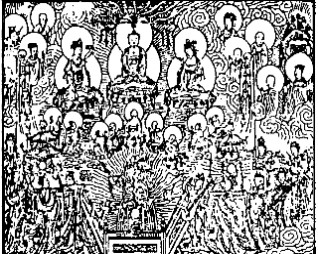 |
Those who are reborn in the Western Pureland may be divided into three classes: upper, middle, and lower. Again, each class may be divided into three grades: upper, middle, and lower. Hence, in total, there are nine grades.
16. Upper Grade of Upper Class
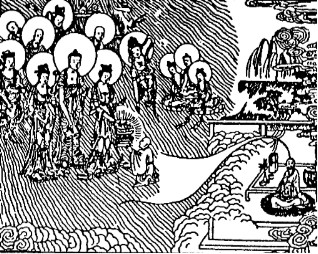 |
Those, whose minds are sincere, profound and dedicate all merits toward Rebirth in Sukhavati, would belong to this grade. Besides, those who are merciful, do not kill and observe the Silas, those who practice reciting the Mahayana Sutras, and those who practice the Six Remembrances and dedicate the merits toward Rebirth in Sukhavati, would all belong to this grade.
17. Middle Grade of Upper Class
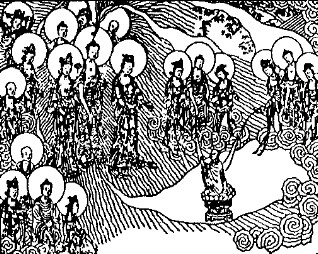 |
Those, who do not practice reciting the Mahayana Sutras and yet understand well the subtle meanings thereof, who are not stunned by the fundamental Truth, who deeply believe in Causation and do not slander the Mahayana teachings, and who dedicate all these merits toward Rebirth in Sukhavati, would belong to this grade.
18. Lower Grade of Upper Class
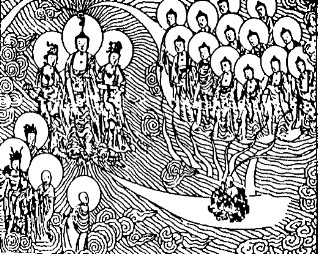 |
Those, who believe in Causation, who do not slander the Mahayana teachings, who have set the Unsurpassable Enlightenment as their goal, and who dedicate all these merits toward Rebirth in Sukhavati, would belong to this grade.
19. Upper Grade of Middle Class
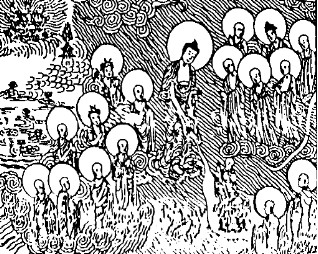 |
Those, who observe the Five Silas, the Eight Silas or the various sets of Silas, who do not commit the Five Deadly Sins nor other evil deeds, and who dedicate all these merits toward Rebirth in Sukhavati, would belong to this grade.
20. Middle Grade of Middle Class
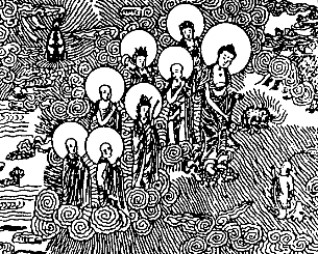 |
Those, who observe the Eight Silas, the Silas of Sramanera (novice monk), or the complete set of Silas for one day and one night without any infringement, and who dedicate all these merits toward Rebirth in Sukhavati, would belong to this grade.
21. Lower Grade of Middle Class
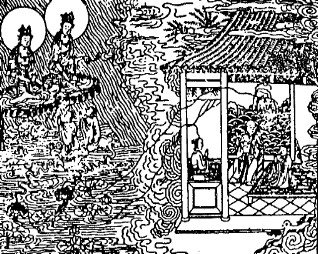 |
Those, who filially attend the livelihood of their parents and are kind and compassionate, who, upon their death, meet a well-learned person who describes the pleasant things of Sukhavati and enumerates the forty-eight great vows of Dharmakara Bhiksu for them, and who die right after hearing all these, would belong to this grade.
22. Upper Grade of Lower Class
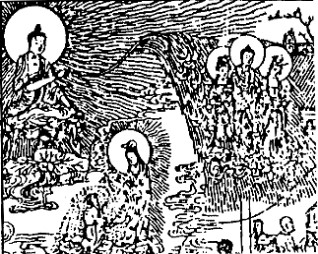 |
Those who although do not slander the Mahayana Sutras and yet commit many evil deeds without regret, and who, upon their death, meet a well-learned person who recites the titles of the twelve Mahayana Sutras for them and teaches them to recite "Namo Amitabha Buddha" with folded palms so that their sins may be destroyed, would be freed from their sins through Buddha's grace and belong to this grade.
23. Middle Grade of Lower Class
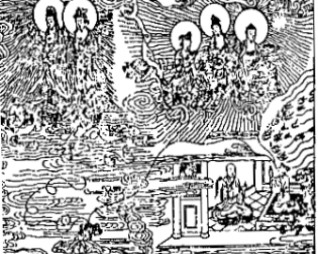 |
Those, who break the Silas, who steal monks' belongings, who shamelessly preach the Dharma with impure motives, who, upon their death, because of their sins, see the fire of Hell, and who fortunately meet a well-learned person who mercifully praises the enlightened powers of Amitabha Buddha and the salvation through Buddha Dharma for them, and who, upon hearing all these, get rid of their sins and see the Hell Fire transform into cool breeze, would belong to this grade.
24. Lower Grade of Lower Class
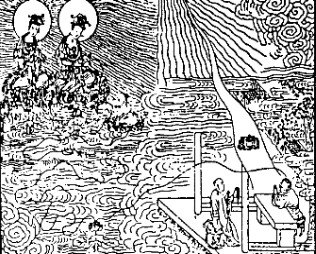 |
Those, who commit all kinds of sins including the Five Deadly Ones and the ten evil things, who, upon their death, meet a well-learned person who comforts them by preaching the subtle Dharma and teaching them to recite "Namo Amitabha Buddha," and who, although in great suffering resulting from their sins, devotedly repeat this at least ten times and thereby have their sins destroyed through Buddha's Grace, would belong to this grade.
[Home][Back to main list][Back to Chenian][Go to Dr. Lin's works]
